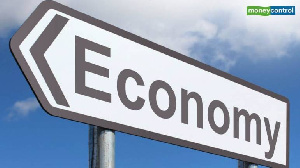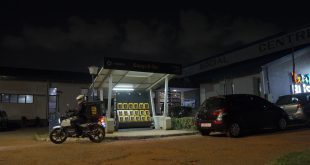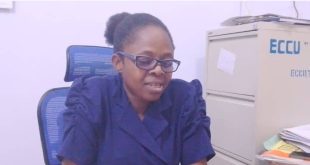The national economic situation is grimmer than most Ghanaians know it to be. Yes,
most of us know that prices of everything have quadrupled over the last one year
and the cost of living has hit the roof. We know that the cedis, the national currency
has witnessed its fastest depreciation since it was liberalized and sold on the market
like any other commodity. We have seen the price of a liter of fuel surpassing the
minimum wage. And yes, we now know that the government cannot pay its debt and
it is desperately seeking to ramp through a program to restructure the debt.
What many do not realize is that the grim national economic situation is about to get
worse in the absence of a national mobilization to pull ourselves from the brink. The
cedi depreciation has been caused by massive outflow of resources from Ghana as
investors lost confidence because of the repeated downgrade of Ghana’s credit
worthiness by the ratings agencies. Many events led to the downgrades. The
national debts stock was high even before the pandemic struck and we had to
borrow our way through it. Then in 2022, when the economic cost of the pandemic
was about to crystallize the war in Ukraine got underway. Unfortunately, for the first
time, our parliament decided to do fist fight over the 2022 economic program (budget
and economic policy statement of government) and eventually scuttling the national
response to the present and emerging domestic and global crisis. This has resulted
in the depletion of the country’s international reserves and impairing our ability to
import nearly all the things we consume. And this is the reason the government
sought balance of payment support from the International Monetary Fund (IMF). This
has become known as the IMF bailout.
But that bailout has hit a snag even after we have secured a Staff Level Agreement
(SLA) with the Fund. The technocrats at the Ministry of Finance and Bank of Ghana
are telling us that a country cannot secure an IMF bailout unless it can demonstrate
that its debts are sustainable over the medium term. As we know our debts are
neither sustainable now nor over the medium term.
To ensure sustainability of our debt over the medium term the country has ushered into a debt treatment program or the Debt Exchange Program. The domestic component of the program – the
Domestic Debt Exchange – has elicited strong opposition. The unions have fought to
exclude pensions from the program. This has breached the sustainability threshold
set by the IMF. The individual bondholders are in a struggle of their own for their
lifetime investments.
According to the experts and people closer to the IMF negotiations, without a
successful debt exchange, the IMF staff cannot take the SLA they reached with the
government to the IMF Board. And there cannot be an IMF bailout. And if Ghana
fails to secure an IMF bailout within the next three (3) months the economic
consequences will be dire. The social and political fallout could be catastrophic.
In economic terms, a failed IMF negotiations could lead to disorderly default. We
have already suspended our debt service obligations on selected external debts. In a
disorderly default we don’t need to publicly announce, the figures will tell all our
creditors (particularly the external creditors) that we cannot pay them anything. For
domestic creditors we can print more cedis to pay them and generate ever more
inflation making everyone worse off.
A failed IMF deal has other ominous consequences. With depleted national reserves,
we cannot import most things. We may not be able to import fuel and shortages will
ensue. The thermal plants that run on crude oil will have to be turned off, leading to
the re-emergence of DUMSOR. The country will struggle to import basic products
like food and medicines. The cedi will depreciate to a collapse. The cost of living will
further increase, and life will become unlivable. This might sound like science-fiction
but it is a probable reality that beacons this country if we don’t act and act soon. The
signs are on the wall. We are on the road to Sri-Lanka! Time is of the essence.
But exactly should we do?
In all honesty, Ghanaians have done well in the last one year. Citizens have endured
one of the excruciating moments in our recent history. We have soaked incredible
cost of living pressures as prices increased on a daily, sometimes hourly basis. Just
this month, Value Added Tax (VAT) has been increased and it has been passed on
by businesses. Last week Utility Tariffs went up.
Sure, Ghanaians have continued to complain bitterly but we seem to be enduring the
harsh realities of the time. We are still buying gari and beans even though the prices
are hitting the roof. We are still buying fuel and paying for the high transport fares.
Many are still tormented by the possibility of losing their hard-earned investments
including pensions. Citizens seem to have limited choice.
But one thing is certain. Ghanaians are acting like real citizens and are fiercely
resisting all governmental initiatives including, sadly, initiatives that have the
potential to resolve the current crisis. There are two main issues involved here: First,
for reasons that are hard to understand government is refusing to consult the key
social and political forces on its proposals on big-ticket economic items that hold the
fabric of the economy and society. Instead, the government has chosen to surprise
citizens and turned them into a reaction mob. In the end, government initiatives fail to
benefit from our collective wisdom and embrace.
Second, and most crucial, the government of President Akufo Addo has continued to
ask Ghanaians to endure very difficult economic conditions, including ramping up
taxes but the President has obstinately refused the one request from Ghanaians for
him to reshuffle his ministerial portfolio and reduce the size of his government. We,
the 31 million or so Ghanaians, are grudgingly paying the e-levy and the 2.5
percentage point increase in the VAT. We are enduring fuel and utility price
increases and an associated increase in transport fares. And even without the debt
exchange program, our incomes/earnings and wealth have plunged beyond our
wildest imagination.
But the President who in 2017 asked us to be citizens (not spectators) has refused to
act on our demands and harmless suggestions. He has continued to maintain the
largest ministerial portfolio in the 4 th Republic. There remains a lengthy list of
presidential staffers. Their job roles are not clear and outputs difficult to measure.
Some loss-making State-Owned Enterprises (SOEs) have three deputy CEOs enjoying all the pecks including having their DSTV subscriptions paid for by their
financially distressed organization.
It is clear to me that Ghanaians want the president to reshuffle and reduce the size
of his government. This may not immediately reduce the size of the national debt
and avoid the painful debt restructuring program. But it will communicate to
Ghanaians that their President and government is listening and making their own
contribution towards resolving the current crisis. And it might soften public anger and
resistance to government initiatives intended to solve the crisis we have.
The President must not forget that governing is transactional and that we need
political negotiations and settlement to resolve the current economic problems. But
as John F. Kennedy noted 7 decades ago “we cannot negotiate with people who say
what’s mine is mine and what’s yours is negotiable”
By Samuel Ameyaw
 Home Of Ghana News Ghana News, Entertainment And More
Home Of Ghana News Ghana News, Entertainment And More





